World
John McCain and Lindsey Graham: Why we need more forces to end the stalemate in Afghanistan

On Sept. 11, 2001, al-Qaeda terrorists murdered 3,000 innocent civilians on American soil while under the sanctuary of the Taliban regime in Afghanistan. In response to that attack, U.S. and NATO forces deployed to Afghanistan to hunt down those responsible and ensure that Afghanistan would never again be a haven for terrorists. Since then, more than 2,000 Americans and more than 1,000 troops from our NATO allies have given their lives to that mission.
But after more than a decade-and-a-half of war, Gen. John W. Nicholson, commander of U.S. and coalition forces in Afghanistan, told the Senate Armed Services Committee last month that the war in Afghanistan is in a stalemate. President Trump and his administration must treat Afghanistan with the same urgency as the fight against the Islamic State, or this stalemate risks sliding into strategic failure.
This month, two simultaneous suicide attacks by the Taliban in Kabul killed at least 16 people and wounded more than 40. In northern Afghanistan, the Taliban overran another district. These setbacks came on the heels of disturbing losses across the country. Nicholson recently confirmed an inspector general report that the Afghan government controls or influences just 57 percent of the country’s districts, down from 72 percent just over a year ago.
Make no mistake: Afghans are fighting ferociously to defend their country from our common enemies. At the same time, we must recognize that the United States is still at war in Afghanistan against the terrorist enemies who attacked our nation on Sept. 11 and their ideological heirs. We must act accordingly.
Unfortunately, in recent years, we have tied the hands of our military in Afghanistan. Instead of trying to win, we have settled for just trying not to lose.
Time and time again, we saw troop withdrawals that seemed to have more to do with U.S. politics than conditions on the ground. The fixation with “force management levels” in Afghanistan, as well as in Iraq and Syria, seemed more about measuring troop counts than measuring success.
Authorities were also tightly restricted. Until last summer, our military was prohibited from targeting the Taliban, except in the most extreme circumstances, taking the pressure off the militants and allowing them to rebuild and reattack. Indeed, while we were fighting the Islamic State in Syria and Iraq, authorities in Afghanistan were so restrictive that it took an entire year before U.S. forces were finally given authority to strike the group’s fighters in Afghanistan.
While we have settled for a “don’t lose” strategy, the risk to U.S. and Afghan forces has only grown worse as the terrorist threat has intensified.
The Taliban has grown more lethal, expanded its territorial control and inflicted heavy casualties on Afghan forces. And it is reportedly doing so with help from Iran and Russia, who want nothing more than to see the United States fail in Afghanistan.
Al-Qaeda and the Haqqani network continue to threaten our interests in Afghanistan and beyond.
The Islamic State is trying to carve out another haven from which it can plan and execute attacks.
Moreover, U.S. efforts to confront these terrorist threats are continually frustrated by terrorist sanctuaries in Pakistan used to attack across its border and kill U.S. forces. Deteriorating relations between Pakistan and Afghanistan only make this problem more difficult.
President Trump has an important opportunity to turn the page, seize the initiative and take the fight to our terrorist enemies. To do this, the United States must align ends, ways and means in Afghanistan.
The U.S. objective in Afghanistan is the same now as it was in 2001: to prevent terrorists from using the country’s territory to attack our homeland.
We seek to achieve this objective by supporting Afghan governance and security institutions as they become capable of standing on their own, defending their country and defeating our common terrorist enemies with less U.S. assistance over time.
Doing this successfully requires the right number of people in the right places with the right authorities and the right capabilities. Our assessment, based on our conversations with commanders on the ground, is that a strategy for success will require additional U.S. and coalition forces and more flexible authorities. It will also require sustained support of the Afghan security forces as they develop key capabilities, especially offensive capabilities such as special operations forces and close air support needed to break the stalemate.
The United States has been at war in Afghanistan for nearly 16 years. Weary as some Americans may be of this long conflict, it is imperative that we see our mission through to success. We have seen what happens when we fail to be vigilant. The threats we face are real. And the stakes are high — not just for the lives of the Afghan people and the stability of the region, but for America’s national security.
By John McCain and Lindsey Graham – Originally published by the Washington Post
John McCain (R-Ariz.) is chairman of the Senate Armed Services Committee. Lindsey Graham (R-S.C.) is a member of the committee.

World
Blinken arrives in Ukraine in show of US solidarity amid Russian attacks
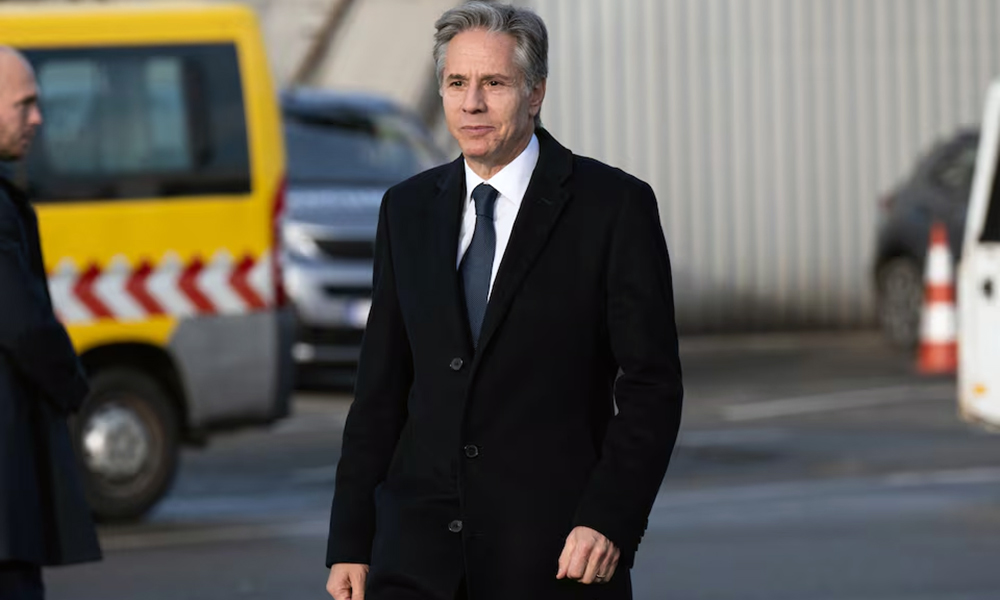
U.S. Secretary of State Antony Blinken arrived in Kyiv on Tuesday in the first visit to Ukraine by a senior U.S. official since Congress passed a long-delayed $61 billion military aid package for the country last month, Reuters reported.
The previously undisclosed trip aims to show U.S. solidarity with Ukraine as it struggles to fend off heavy Russian bombardment on its northeastern border.
Blinken, who arrived in Kyiv by train early on Tuesday morning, hopes to “send a strong signal of reassurance to the Ukrainians who are obviously in a very difficult moment,” said a U.S. official who briefed reporters traveling with Blinken on condition of anonymity.
“The Secretary’s mission here is really to talk about how our supplemental assistance is going to be executed in a fashion to help shore up their defenses (and) enable them to increasingly take back the initiative on the battlefield,” the official said.
Artillery, long-range missiles known as ATACMS and air defense interceptors approved by President Joe Biden on April 24 were already reaching the Ukrainian forces, the official said.
Blinken will reassure Ukrainian officials including President Volodymyr Zelenskiy of enduring U.S. support and deliver a speech focused on Ukraine’s future, the official said.
Kyiv has been on the back foot on the battlefield for months as Russian troops have slowly advanced, mainly in the Donetsk region to the south, taking advantage of Ukraine’s shortages of troop manpower and artillery shells. Russia’s forces hold a significant advantage in manpower and munitions.
On Monday, U.S. National Security Advisor Jake Sullivan said Washington was trying to accelerate “the tempo of the deliveries” of weapons to Ukraine to help it reverse its disadvantage, read the report.
“The delay put Ukraine in a hole and we’re trying to help them dig out of that hole as rapidly as possible,” Sullivan said, adding that a fresh package of weapons was going to be announced this week.
EXPANDING THE FIGHTING
Russia now controls about 18% of Ukraine and has been gaining ground since the failure of Kyiv’s 2023 counter-offensive to make serious inroads against Russian troops dug in behind deep minefields.
Moscow’s troops entered Ukraine near its second largest city of Kharkiv on Friday, opening a new, northeastern front in a war that has for almost two years been largely fought in the east and south. The advance could draw some of Kyiv’s depleted forces away from the east, where Russia has been advancing.
“They (the Russians) are clearly throwing everything they have in the east,” said the U.S. official.
Economic and political reforms being undertaken by Kyiv will pave the way for the country to join the European Union and eventually NATO, the official said.
While the U.S.-led defense alliance is not likely to admit Ukraine any time soon, individual members are reaching bilateral security agreements with Kyiv. Talks on a U.S.-Ukraine agreement are “in the final stages” and will conclude ahead of the July NATO summit in Washington, the U.S. official said.
The Group of Seven wealthy nations signed a joint declaration at the NATO summit in Vilnius in July last year committing to establish “long-term security commitments and arrangements” with Ukraine that would be negotiated bilaterally, Reuters reported.
Kyiv says the arrangements should contain important and concrete security commitments, but that the agreements would in no way replace its strategic goal of joining NATO. The Western alliance regards any attack launched on one of its 32 members as an attack on all under its Article Five clause.
World
Brazil floods kill 143, government announces emergency spending
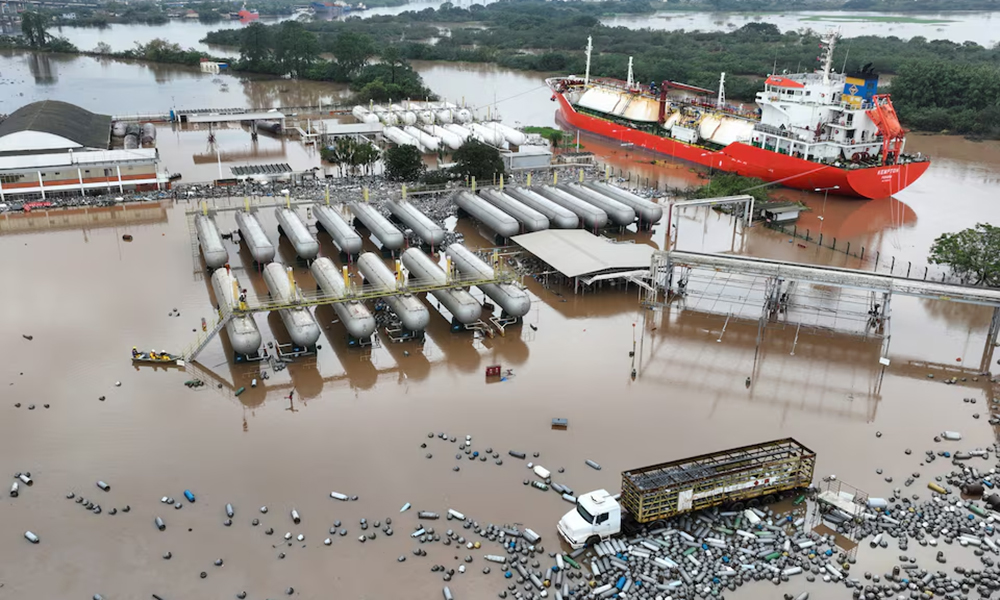
The death toll from heavy rains in Brazil’s Rio Grande do Sul state rose to 143, up from 136 on the day before, the local civil defense government body said on Sunday, as rains continue to pour on the state, Reuters reported.
Another 125 people remain unaccounted for in the state, where rivers are reporting rising levels. Weather service Metsul called the situation “extremely worrying.”
On Saturday evening the government announced around 12.1 billion reais ($2.34 billion) in emergency spending to deal with the crisis that has displaced more than 538,000 people in the state, out of a population of around 10.9 million.
With this new money, more than 60 billion reais in federal funds has already been made available to the state, said the federal government in a statement on Saturday.
Brazil’s President Luiz Inacio Lula da Silva said the state will rebuild what was destroyed, read the report.
“We know that not everything can be recovered, mothers have lost their children and children have lost their mothers,” said Lula on social media X, in a statement to mark Mother’s Day.
On Saturday, U.S. President Joe Biden issued a statement, saying that his administration is in contact with Brazil’s government to provide assistance.
“Our thoughts and prayers are with the people impacted by this tragedy and the first responders working to rescue and provide medical care to families and individuals,” said Biden.
More rain fell on Sunday and is expected on Monday. Less than two weeks after the rains began, the state is again on alert with the risk of water rising once more to record levels on the Guaiba lake, near the capital Porto Alegre, Reuters reported.
The state is at a geographical meeting point between tropical and polar atmospheres, which has created a weather pattern with periods of intense rains or drought.
Local scientists believe the pattern has been intensifying due to climate change.
World
Canadian police arrest fourth man for murder of Sikh leader Nijjar

A fourth person has been arrested and charged with the murder of Sikh separatist leader Hardeep Singh Nijjar last year, Canadian police said on Saturday, in a case that strained diplomatic relations with India.
Canadian police earlier this month arrested and charged three Indian men in the city of Edmonton in Alberta and said they were probing whether the men had ties to the Indian government, Reuters reported.
The Integrated Homicide Investigation Team (IHIT) announced Saturday that Amandeep Singh, 22, has been charged with first-degree murder and conspiracy to commit murder in Nijjar’s killing.
Singh, an Indian national who resided in Brampton, Surrey and Abbotsford, was already in custody for unrelated firearms charges out of Peel, Ontario, IHIT said.
Nijjar, 45, was shot dead in June outside a Sikh temple in Surrey, a Vancouver suburb with a large Sikh population. A few months later, Canadian Prime Minister Justin Trudeau cited what he said was evidence of potential Indian government involvement, prompting a diplomatic crisis with New Delhi.
Nijjar was a Canadian citizen campaigning for the creation of Khalistan, an independent Sikh homeland carved out of India. The presence of Sikh separatist groups in Canada has long frustrated New Delhi, which had labeled Nijjar a “terrorist”.
-

 Science & Technology4 days ago
Science & Technology4 days agoTikTok to label AI-generated content from OpenAI and elsewhere
-

 World5 days ago
World5 days agoIsrael strikes eastern Rafah as ceasefire talks end with no deal
-

 Regional4 days ago
Regional4 days agoTurkey says it killed 17 Kurdish militants in northern Iraq, Syria
-
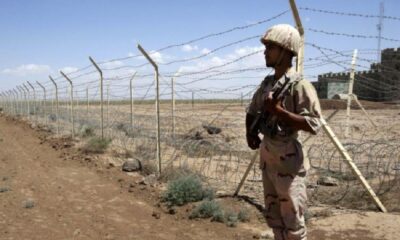
 Latest News4 days ago
Latest News4 days agoIran says work underway to block eastern border with Afghanistan
-
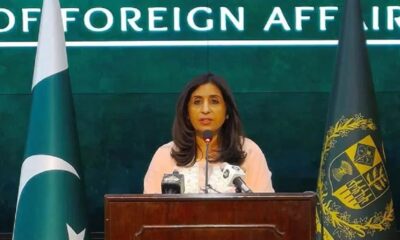
 Latest News5 days ago
Latest News5 days agoPakistan rejects IEA’s allegations of Daesh using its territory against Afghanistan
-
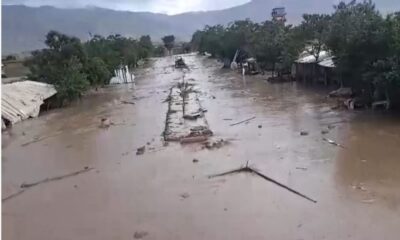
 Latest News4 days ago
Latest News4 days agoFloods leave 50 dead in Baghlan
-

 World5 days ago
World5 days agoIreland and Spain could recognise Palestinian state on May 21, RTE News reports
-

 Latest News4 days ago
Latest News4 days agoHundreds killed and injured in floods in four Afghan provinces
















